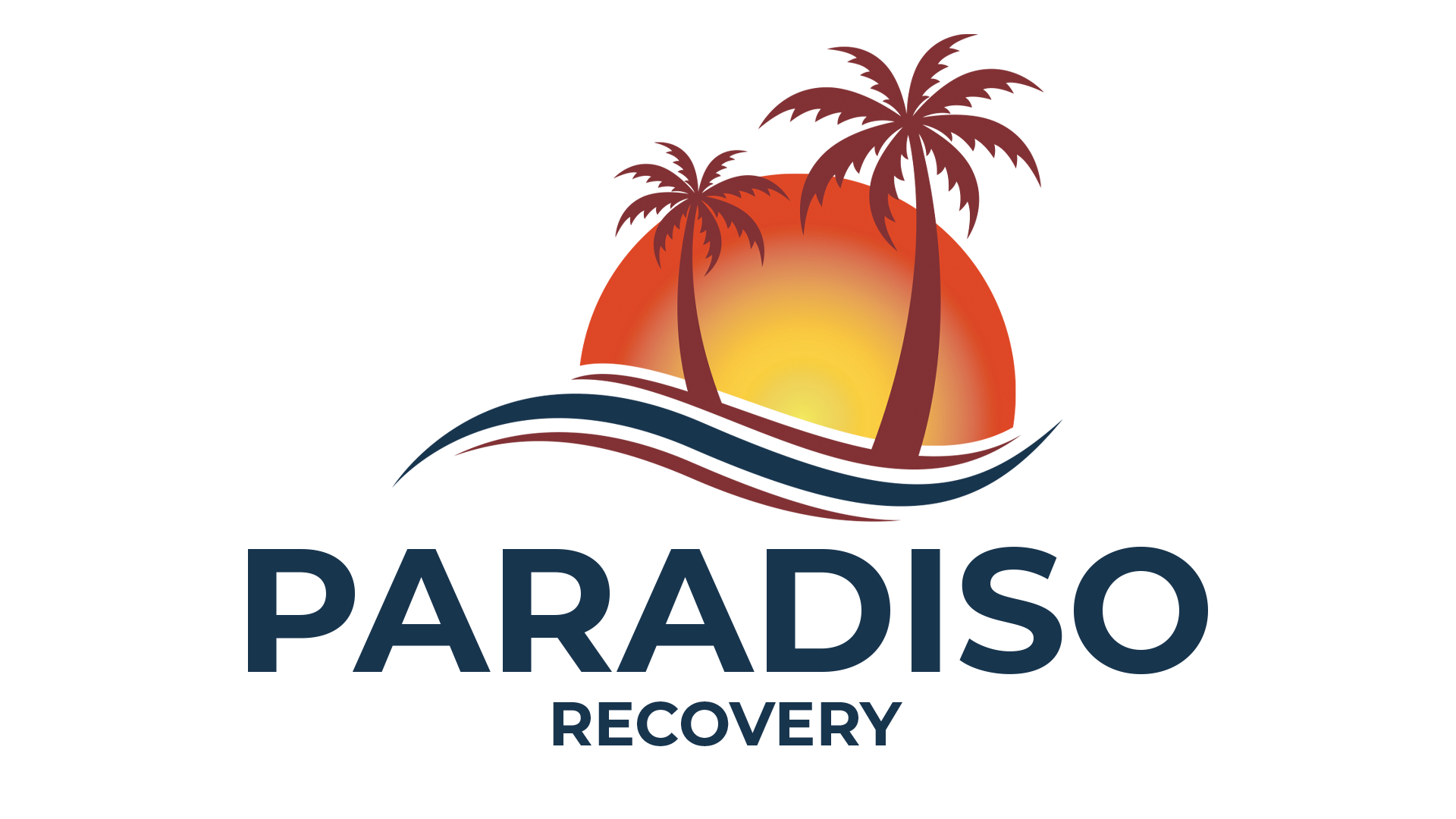Post-traumatic Stress Disorder (PTSD) and Addiction Treatment in Ventura County
Post-Traumatic Stress Disorder (PTSD) and Addiction Treatment in Ventura County
Living with trauma can feel like a never-ending cycle of isolation, fear, and uncertainty. The toll that trauma can take on a person mentally can leave them ripe for substance abuse and addiction as they search for anything that can help numb or escape their emotional pain, even if that relief is brief.

If you or a loved one is struggling with PTSD and substance use, you are not alone, and recovery is possible. For those suffering from co-occurring mental health disorders, such as PTSD and addiction, we at Paradiso Recovery offer trauma-informed, evidence-based care tailored specifically for those with a dual diagnosis. Our facility works to address both conditions simultaneously to create the best possible outcomes in the long term.
What is Post-Traumatic Stress Disorder (PTSD)?
Post-Traumatic Stress Disorder (PTSD) is a mental health condition that develops as a result of experiencing or witnessing a traumatic event. This trauma could include combat exposure, physical or sexual assault, natural disasters, serious accidents, or prolonged abuse.
While having distressing reactions in the aftermath of a traumatic event is normal, someone with PTSD will continue to experience intense emotional responses long after the danger has passed. These reactions can be so severe that they interfere with daily functioning, relationships, and overall quality of life.
Differences From Complex PTSD
While PTSD typically results from a single traumatic event or series of events, Complex PTSD (C-PTSD) arises from prolonged or repeated trauma, such as ongoing physical abuse, emotional neglect, captivity, or exposure to war.
C-PTSD includes many of the hallmark symptoms of PTSD, but it also involves additional challenges such as:
- Difficulty regulating emotions
- Feelings of deep shame or guilt
- Problems with self-identity
- Chronic feelings of helplessness or worthlessness
- Struggles forming or maintaining relationships
Symptoms of PTSD
Symptoms of PTSD typically fall into four categories, although it’s important to note that each person may experience them differently:
Intrusive Thoughts
- Flashbacks or reliving the trauma
- Nightmares or distressing dreams
- Unwanted, intrusive memories of the event
Avoidance
- Avoiding people, places, or activities that are reminders of the trauma
- Refusing to talk about the traumatic experience
- Emotional numbing or disconnection
Negative Changes in Mood and Cognition
- Persistent negative beliefs about oneself, others, or the world
- Distorted blame or guilt related to the trauma
- Loss of interest in activities once enjoyed
- Feelings of detachment or isolation
Arousal and Reactivity
- Being easily startled or constantly “on edge”
- Irritability or angry outbursts
- Difficulty sleeping or concentrating
- Hypervigilance and paranoia
When left untreated, these symptoms can be debilitating. Many people with PTSD struggle to maintain jobs, healthy relationships, or even day-to-day stability.
Contact us right now for a free, confidential insurance verification
Free Insurance Verification
The Connection Between PTSD and Addiction
Because of the mental toll and anguish PTSD can take on a person, PTSD and substance use disorder are often connected. Reasons for this may include:
Self-Medication and Coping
For many suffering from PTSD, using drugs or drinking alcohol become a means of coping with painful memories, sleep disturbances, and emotional numbness. While these substances may provide temporary relief, they can make the condition worse long-term. This may result in a seemingly never-ending cycle of dependence and addiction.
Shared Risk Factors
PTSD and addiction share common risk factors, including:
- Childhood trauma or abuse
- Family history of mental illness or addiction
- Poor coping mechanisms or a lack of emotional support
- Co-occurring mental health conditions (e.g., anxiety disorders, clinical depression)
Because these conditions can originate from trauma from the same inciting incidents, treating them in isolation can be ineffective. Not taking into account how the different conditions may be linked can lead to relapse and prolonged suffering.
Brain Reward Systems and Altered Neurochemistry
Trauma can alter the brain’s natural reward system. The neurotransmitters responsible for feelings of pleasure, safety, and regulation can become dysregulated in people with PTSD. Addictive substances can restore these feelings temporarily, especially the rush of dopamine or serotonin. This can make the person more likely to grow dependent on them to feel a sense of normalcy.
Substance Use Can Hinder PTSD Healing
Substance use doesn’t just mask PTSD symptoms, it can actively interfere with healing.
Addiction can:
- Reduce the effectiveness of trauma-focused therapy
- Impair memory consolidation needed for EMDR or CBT
- Prevent emotional regulation during distress tolerance practices
- Increase the likelihood of re-traumatization
This is why integrated treatment, where both PTSD and addiction are addressed simultaneously, is so critical.
Why Trauma-Informed Care Matters
Treating PTSD and addiction separately can overlook the complex ways in which these disorders interact. Integrated, trauma-informed dual diagnosis treatment recognizes that substance use is often a coping mechanism for certain mental health conditions.
This model ensures that:
- Both conditions are treated at the same time and attention is paid to how they are connected
- Individuals are not retraumatized by the treatment process
- Safety, empowerment, and trust are central to recovery
- Individuals can learn how to healthfully cope with their conditions, leading to empowerment and less temptation to relapse
Treatment for PTSD and Addiction
At Paradiso Recovery in Ventura County, we specialize in dual diagnosis treatment that supports recovery on all levels. As part of our comprehensive dual diagnosis treatment program, we offer:
Individual Therapy
Family Therapy
- Understand how PTSD and addiction work in a person
- Rebuild trust and communication
- Learn how to support their loved one’s healing process
- Address intergenerational trauma and/or codependency
Dialectical Behavioral Therapy (DBT)
Dialectical Behavioral Therapy is especially effective for individuals with PTSD and co-occurring emotional dysregulation.
DBT can teach practical skills around:
- Distress tolerance: Coping with emotional crises without turning to substances
- Emotional regulation: Managing intense feelings without becoming overwhelmed
- Interpersonal effectiveness: Setting boundaries and building healthy relationships
- Mindfulness: Grounding in the present moment rather than being consumed by trauma-related thoughts
DBT skills can help reduce impulsivity, increase resilience, and help individuals stay present through the healing journey.
Eye Movement Desensitization Reprocessing (EMDR)
- Reducing the emotional intensity of traumatic memories
- Reframing negative beliefs linked to trauma
- Accessing adaptive thoughts and feelings
Cognitive Behavioral Therapy (CBT)
- Identify and challenge distorted thought patterns
- Understand the connection between thoughts, feelings, and behaviors
- Build healthier responses to emotional triggers
- Replace maladaptive behaviors (like substance use) with positive coping strategies
Trauma Processing
Trauma processing refers to a set of therapeutic strategies used to help those in treatment safely access, confront, and integrate traumatic memories. This process is essential for reducing the emotional and physiological grip of past experiences.
At Paradiso Recovery, trauma processing may involve:
- Gradual exposure to painful memories in a controlled setting
- Narrative therapy to re-author one’s personal story
- Somatic experiencing to release trauma held in the body
- Resourcing techniques to build inner safety and stability
Effective trauma processing helps with not only understanding what happened, but also how it continues to affect their present. With support, individuals can begin to make peace with their past and move forward with greater confidence and freedom.
Receive Help for PTSD and Addiction at Paradiso Recovery
If you or a loved one is struggling with PTSD and addiction, it’s easy to feel like there is no escape. However, it’s important to remember that’s not true and help is available.
At Paradiso Recovery in Ventura County, we provide holistic, trauma-informed care for individuals navigating the dual diagnosis of PTSD and substance use. We believe that everyone deserves to feel safe, seen, and empowered in their recovery. Whether the trauma occurred recently or many years ago, and whether the addiction is new or long-standing, we are here to help you reclaim your life.
For more information on our dual diagnosis treatment programs or to get started on the road to recovery, contact us today.
